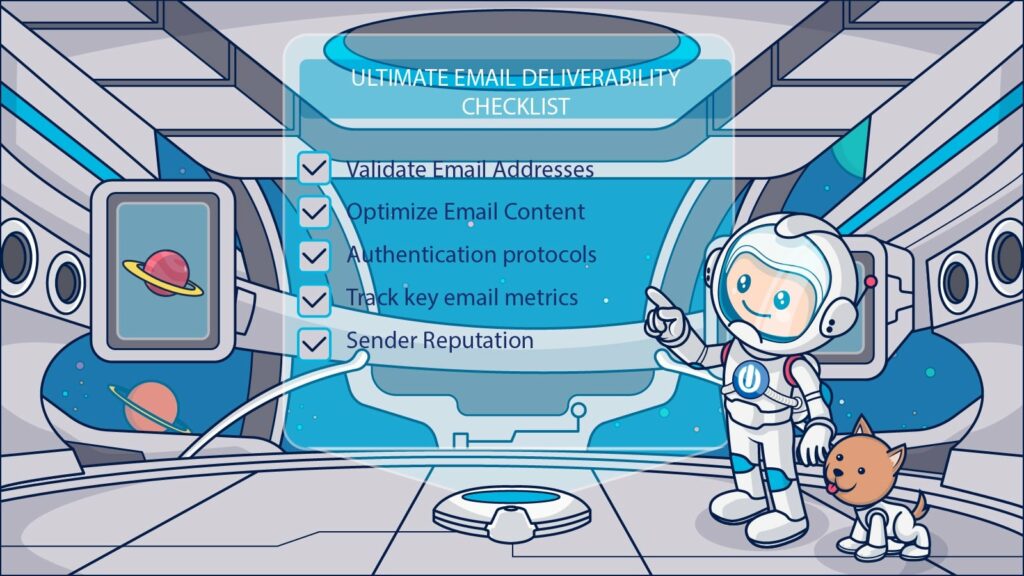Marketing is the business of building fruitful, long-lasting relationships between your brand and your customers.
This can be challenging when marketing through email, as making strong connections with people is often more difficult when communicating through written correspondence.
This means email marketing professionals must be creative and use all of the tools and information at their disposal to create more personal, resonant experiences for their subscribers.
Behavioral targeting is one way that modern marketers can achieve email personalization at scale.
What is behavioral targeting?
Behavioral targeting is an approach to email marketing that focuses on reaching subscribers with content that is most meaningful and relevant to them.
By using customer behaviors as triggers, marketers can create automated email workflows that provide information related to a subscriber’s specific circumstances. This allows brands to further nurture relationships and help subscribers progress along their customer journey.
The reactive nature of this marketing approach means that collating the right data is essential if it is to be properly implemented. Depending on your specific objectives, some customer activities may be more significant to you than others.
For example, it is generally advisable to keep track of customer behaviors, such as site search history, purchases, pages visited, clicks, and visit frequency.
Benefits of behavioral targeting for brands
Behavioral targeting has begun to see widespread adoption on a global scale, and there are numerous reasons for this. Below are some of the key benefits that behavioral targeting brings to brands.
Improved key metrics
Marketing campaigns are designed to elicit desired actions, or conversions, from email users, such as a product purchase or a subscription to a service. Typically, users are unlikely to open emails that lack any kind of personalization, but behavioral targeting helps avoid this problem, resulting in improved open rates and conversion rates.
Moreover, behavioral targeting can also increase your conversions by encouraging those who have faltered along the way.
For example, customers who abandon their carts without completing a purchase may receive a specific email response that reminds them and encourages them to return and finish the process.
Increased authenticity
Email users are continually receiving messages, and they quickly add up. Because they are exposed to such enormous quantities of email marketing content, users are quick to dismiss anything they regard as spam.
Moreover, an increasingly large proportion of users are unlikely to open messages that they regard as generic, even if they come from legitimate organizations.
Behavioral targeting helps marketers reach users with relevant content that is personal to them and their needs. This generates increased brand engagement, bringing a very real sense of authenticity that helps to sustain customer relationships and nurture customer loyalty.
Sharper market focus
By tracking customer behavior and sending out carefully curated and relevant content, you enable yourself to reach your subscribers in a more meaningful way. T
his creates a process of refinement whereby you get a clearer and more precise picture of who your target demographic is as well as what they’re looking for.
This sharpened focus will inform your decision-making moving forward, increasing your chances of success with future marketing campaigns.
What’s more, behavioral targeting emails provide a considerable return on investment, since this increased focus will enable you to avoid wasting time and money trying to reach customers who aren’t interested in what you have to offer.
Benefits of behavioral targeting for customers
The benefits of behavioral targeting aren’t exclusive to brands. Fine-tuned behavior marketing emails can improve the customer experience through added convenience, personalization, and promotions.
A more engaging experience
From a customer perspective, behavioral targeting has almost no downside. Since they targeted emails that relate specifically to their behavior and expressed interests, customers don’t have to deal with irrelevant emails filling up their inboxes.
Product awareness
Customers gain increased awareness of products and services that may be of interest to them, reducing the need for research and making online purchasing a faster, smoother experience.
Exclusive offers
Brands that use behavioral email marketing often choose to provide offers and deals to customers as a way to re-engage them. This means that customers may avail of special discounts and savings that they may otherwise not have had access to.
The key to behavioral targeting
The more personalized and specific your email marketing content is, the more likely it is to generate the response that you want from your subscribers. This means that in order to engage in behavioral targeting, segmenting your audience into distinct groups is essential.
A comprehensive email marketing platform gives you easy access to important metrics and analytics that can help you perform effective segmentation.
From there, you can create automated email workflows that send pre-written messages to users who perform specific actions to trigger them.
Conclusion
In a world where email users continually find themselves inundated with generic and unsolicited commercial emails, the demand for resonant, relevant, and personalized marketing content is high.
By tracking, analyzing, and effectively segmenting your audience into key groups, you can engage in behavioral targeting and provide your subscribers with the right marketing content at the right moment, increasing brand engagement and boosting your key metrics.













